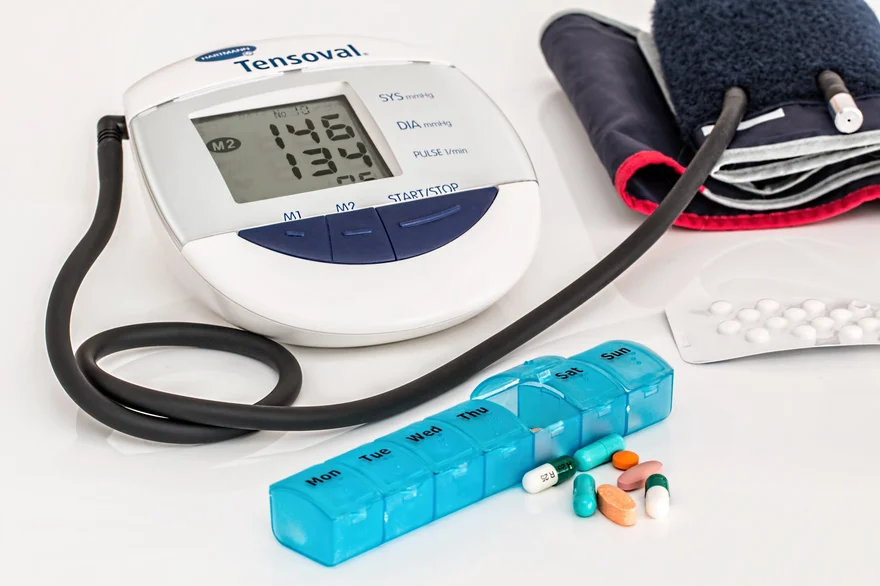Health Wellness
West Nile Virus: Symptoms, Risks, and Understanding West Nile Fever
2931 Views
0

Introduction of West Nile Virus
West Nile virus is caused by a bite of and is a common medical disorder caused when an infected mosquito bites. Most people infected with West Nile virus in India do not show prominent symptoms. However, they possess minor symptoms such as mild fever or headache. In rare cases, the West Nile virus can lead to a severe brain infection or spinal cord inflammation, requiring extensive care. Otherwise, it may lead to a serious threat to the quality of life.
Mosquitoes carrying the virus can also transmit it to animals like horses and not just humans.
As the name suggests, the West Nile virus was identified first in 1937 in the West Nile region of Uganda. Today, its cases are quite prominent in most parts of the United States, except Alaska and Hawaii. Each day, millions of mosquitos bite people all around the world. Some are regular mosquitos, but one out of five carries the West Nile virus in India, leading to minor rashes, redness, or pain. In nearly 1% of cases, the West Nile virus leads to something as life-threatening as neurological infection, which affects a significant part of the brain and nerves.
How do you get West Nile Virus?
Mosquitoes contract this virus by biting an infected bird. A simple mosquito bite can lead to a West Nile virus infection. If the mosquito biting you carries the virus, chances are high that you will get it. Generally, the virus passes through saliva in the human body. In rare cases, the West Nile virus can spread in the following cases -
- During pregnancy and breastfeeding.
- At the time of blood transfusion.
- In the case of organ transplant surgery.
Note: It is impossible to get the West Nile virus by coming in close contact with an infected person.
Symptoms of West Nile Virus
Several studies reveal that the West Nile virus does not always cause major symptoms. Only one out of five people experience mild symptoms during the entire course of West Nile Virus treatment. In extreme cases, the West Nile virus leads to serious health problems and affects the nervous system and the brain.
This infection sometimes causes permanent or long-lasting side effects, including muscle weakness. At times, people can even lose their lives. Medical experts suggest seeking help from doctors before the condition worsens. One of the most prominent symptoms of the West Nile virus is flu. Therefore, it is also known as West Nile fever.
Other minor symptoms of West Nile fever are as follows -
- Fever.
- Nausea and vomiting.
- Body aches or headaches.
- Itchy rash on the back or stomach.
- Diarrhoea.
- Swollen lymph nodes.
Less than 1% of patients infected with the West Nile virus experience other significant symptoms, which directly or indirectly affect the central nervous system.
Following is the list of specific central nervous system severe symptoms -
- Very painful or intense headache.
- Stiff neck.
- High fever above 39.5° C or 103° F.
- Confusion or memory loss.
- Difficulty in movements or muscle weakness.
- Paralysis.
- Coma.
Can West Nile Virus lead to death?
It is uncommon to lose lives because of the West Nile virus, but not impossible. According to researchers, 10% of people falling under the extreme West Nile virus category tend to lose their lifves. However, the rest, 90%, recover through medications or on their own.
Seeking a doctor consultation is recommended if you are experiencing severe West Nile virus symptoms.
A person generally starts to experience symptoms between 4 and 15 days after getting infected.
Mosquitoes are primarily active during summers. Hence, the chances of getting infected with this virus automatically increase during summers. Also, the time of dawn and dusk is quite risky.
How to get diagnosed?
Diagnosis is done by detecting IgM & IgG antibodies against the virus or detecting its RNA by RTPCR.
IgM antibodies rise in 2 days of onset of symptoms. A four-fold increase after 9 days is confirmatory. IgG testing if done before 8 days turns out to be negative. If the same patient tests positive later then the infection is confirmed.
A serological test can be false positive or negative. Hence, for confirmation RTPCR is recommended.
Like most diseases, a simple blood test can confirm the West Nile virus. You are infected with the West Nile virus if the test result is positive. This test searches for West Nile virus antibodies in the blood. These antibodies are proteins in your body that fight the virus.
A spinal tap, also known as the lumbar puncture, is recommended in case of severe symptoms. In this medical procedure, a needle is used to take samples from your spine. This test helps to identify the seriousness of the infection.
West Nile Virus Treatment
No therapy or medication can help to treat the West Nile virus; people usually get better on their own. Medicines like ibuprofen and acetaminophen can help relieve mild headaches, fever, or other aches. In extreme cases, hospital care is recommended. Therapies like breathing support and intravenous fluids provide adequate support to your body to fight the West Nile virus.
Who is at most risk?
As mentioned earlier, the West Nile virus generally spreads through mosquito bites; therefore, populations living in areas prone to dense mosquito breeding grounds. People who stay outside or regularly in locations with high mosquitos are at a higher risk. The best way to minimize the risk factor is by not stepping out.
Mosquitoes are primarily active -
- At dawn and dusk.
- During summer.
- In slow-moving or standing water.
Our bodies fight viruses naturally; however, when these natural defences fail, the West Nile virus enters the body. People above 60 are most likely to come in contact with it, as their bodies fail to fight viruses naturally. As a result, they are more prone to such diseases. Also, a weakened immune system puts you at a higher risk. In rare cases, this virus can spread through an organ transplant or blood transfusion.
How to prevent West Nile Virus contraction?
Prevention is always better than cure! The best way to minimize the risk of virus contraction is to take preventive measures. Some are as follows -
- Refrain from stepping out early mornings and late nights.
- Use an effective repellent.
- Wear light-coloured and light-weight clothes.
- Remove or avoid standing water.
- Keep windows and doors closed to keep mosquitoes out.
- Do not touch dead birds.
When to call a doctor?
If you are concerned about your symptoms, get tested. This virus can cause spinal cord infection or a dangerous brain disorder in rare cases. Visit health expert in the following cases -
- Stiff neck.
- Weakening of the muscles.
- Intense headache.
- High fever.
Conclusion
West Nile virus is a commonly spreading virus in different parts of the world, especially in the United States. So, the chances of you contracting this virus are low. Also, if you take precautions, you can be saved from developing the disease.
People going through this infection usually get better without doctor consultation. However, if you think you’re going through severe West Nile virus symptoms, look for a doctor soon and get your West Nile Virus treatment started. Positive steps to protect yourself, such as spending less time outdoors, can help.
Through this article, you learned about the various facts about the West Nile Virus and how it is affecting life today and in the future. We also discussed its symptoms, causes, and treatment. This virus is not only dangerous to health, but at times, it can lead to death also. Therefore, quick actions are suggested, especially if you spot prominent signs and symptoms.
Get in contact with Comprehensive Fever Panel By Multiplex PCR!























 WhatsApp
WhatsApp